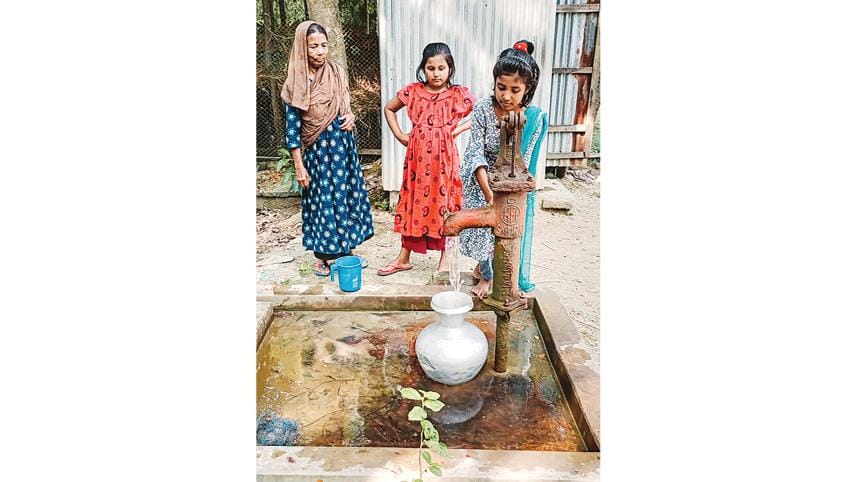Arsenic-contaminated water associated with antibiotic resistance in children, study finds

In rural Bangladesh, areas with more arsenic in the drinking water have more antibiotic-resistant Escherichia coli in the water and in the stool samples of children than areas with less arsenic. This is according to a new study by Mohammad Aminul Islam of Washington State University and his colleagues, which was published on December 8, 2022, in PLOS Pathogens.
Antibiotic resistance is one of the leading causes of death and hospitalisation worldwide. While the major drivers of antibiotic resistance are the overuse and misuse of antibiotics, natural elements such as heavy metals can also promote antibiotic resistance.
In the new study, researchers collected water and stool samples from both mothers and young children in 100 families in two rural subdistricts in Bangladesh. Families in the Hajiganj subdistrict get their drinking water from shallow tube wells, which have a high concentration of arsenic, while families in Matlab collect their drinking water from arsenic-free deep tube wells.
The median amount of arsenic in the 50 samples of water from Hajiganj was 481 μg/L while the median arsenic concentration in the 50 samples of water from Matlab was 0 μg/L. Overall, 84% of all water and stool samples across both sites were found to be positive for E. coli. Antibiotic resistant E. coli was more common in the water in Hajiganj (48%) thanin Matlab (22%) and among children in Hajiganj (94%) compared to children in Matlab (76%), but not among mothers. Moreover, a higher proportion of E. coli from Hajiganj were resistant to multiple antibiotics, including penicillin, cephalosporin, and chloramphenicol.
"The positive association found between arsenic exposure and antibiotic resistance among children in arsenic-affected areas in Bangladesh is an important public health concern that calls for redoubling efforts to reduce arsenic exposure," the authors say.
Dr Islam also stated that heavy metals like arsenic are more persistent than antibiotics and exert selective pressure on bacteria for a longer time, which promotes community-wide antimicrobial resistance. Controlling the environmental factors that make bacteria resistant to antibiotics is very important, as is their responsible use in medicine and agriculture.



 For all latest news, follow The Daily Star's Google News channel.
For all latest news, follow The Daily Star's Google News channel.
Comments